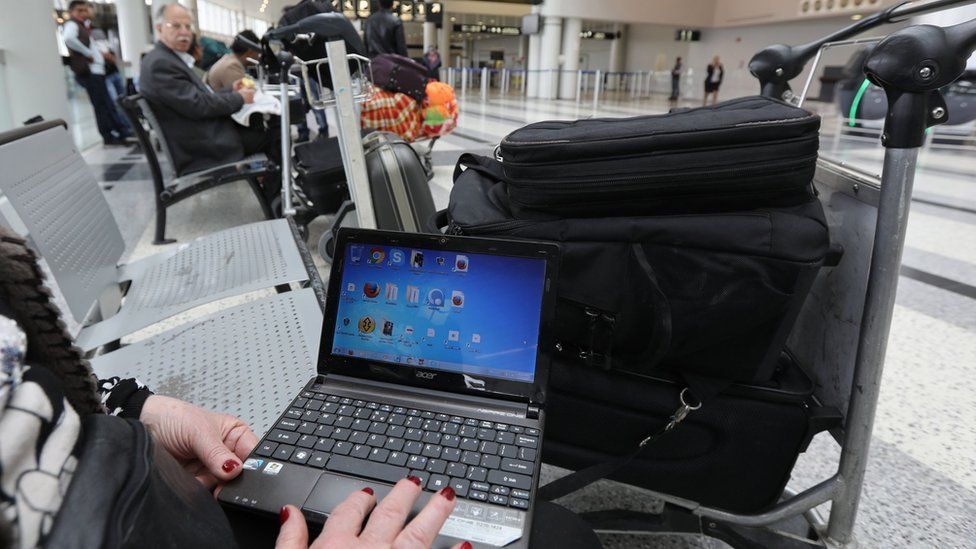US to discuss with EU possible laptop ban on flights
- Published

US and EU officials are due to discuss the possible extension of a US ban on laptops and tablets in cabin baggage when they meet in Brussels next week.
It comes after US Homeland Security said it was considering extending to Europe an existing ban for flights from eight mostly Muslim countries.
The ban was introduced over fears a bomb could be concealed inside electronic devices.
An EU spokeswoman said no decision had been made yet.
"The EU invited the US to come to Brussels next week for talks at political and expert level... to jointly assess the potential risks and review future measures," the spokeswoman said.
However, she added that in a telephone call, EU Transport Commissioner Violeta Bulc had highlighted "the potential safety implications of putting a large number of electronic devices in the aircraft hold".
Ban 'could compromise safety'
In March, the US banned devices "larger than a smartphone" from the cabins of flights from Turkey, Morocco, Jordan, Egypt, the United Arab Emirates, Qatar, Saudi Arabia and Kuwait. At the same time, the UK issued a similar ban on flights from six countries.
On Thursday, US Homeland Security Department Secretary John Kelly held talks with officials from several US airlines.
The airlines declined to comment on the meeting but one official quoted by Reuters news agency said the government was suggesting that an expansion of the ban could come soon.
A congressional official also said the ban was likely to be expanded, but would not say when or to which airports.
Some European regulators have warned that the ban itself could compromise safety by placing hundreds of devices in the cargo holds on long-haul flights. They say the presence of so many lithium-ion batteries could increase the risk of fire.
- Published21 March 2017
- Published21 March 2017